Latest News
Electoral Reforms Commission deadlock continues

The process of deadlock in brining reforms to the electoral system continues as the leaders of national unity government neglecting the issue, some of electoral observing institutions said.
The institutions are said to believe the controversies between the leaders of government on appointing the head of the commission is still not solved.
President Ghani and Chief Executive Officer Abdullah, in the September 2014 agreement, agreed to electoral reforms “to ensure that future elections are credible.”
The details of these reforms, when they should take place and who should design them are, however, proving contentious.
Meanwhile, parliament has been working on relevant laws, while commissioners of the Independent Election Commission (IEC) are fighting off calls for them to be replaced while insisting that, at this point, they are the only ones who should be making changes to improve future elections.
Although everyone is talking about ‘reform’, the wrangling really boils down to a struggle for control of the electoral bodies and, ultimately, the outcome of upcoming elections.
The observing electoral institutions consider the deadlock for reforms of electoral system alarming; adding, currently the civil society institutions are no longer eager to join the commission.
The National Unity Government agreement is quite clear that “to ensure that future elections are fully credible, the electoral system (laws and institutions) requires fundamental changes” and “that the objective is to implement electoral reform before the 2015 parliamentary elections.”
It does not however spell out what these reforms should entail, other than that the president will appoint a special commission who will report to the CEO.
However, President Ghani has his own vision regarding the reforms, saying brining reforms to the electoral bodies is an essential need.
Bringing reform in electoral bodies was one of the main conditions of forming the national unity government. However, the government is still to take vital steps in this regard in its first seven months term.
The deadlock also raise concerns of the donor countries as the parliamentary election is near.
The issue of what electoral reform should look like, when it should take place, with how much urgency and by whom, is dividing the government.
This is a direct consequence of the different way that the two halves of the national unity government look back on the previous election.
According to the Abdullah camp, their victory was stolen through mass interference by partisan electoral bodies, which is why they insist the commissioners should be replaced, the way they are selected changed and the level of accountability of (or control over) the electoral bodies increased.
The Ghani camp on the other hand insists that fraud was both limited and adequately dealt with through the electoral audit.
There is, as a result, a marked reluctance within the Ghani camp to make substantial changes ahead of the upcoming vote, in particular when it comes to replacing the IEC and IECC commissioners.
Making such changes would look like an admission that the electoral bodies were indeed implicated in a fraud-tainted result, which would in turn weaken the position and legitimacy of the president.
It would also mean the replacement of commissioners that are, and have been, to a large extent on his side, which could leave the field open for the Abdullah camp, and other emerging political networks, to gain influence in the electoral bodies.
Reported by Nasrat Parsa

Latest News
Work permits issued to over 2,000, including women: Labor Ministry
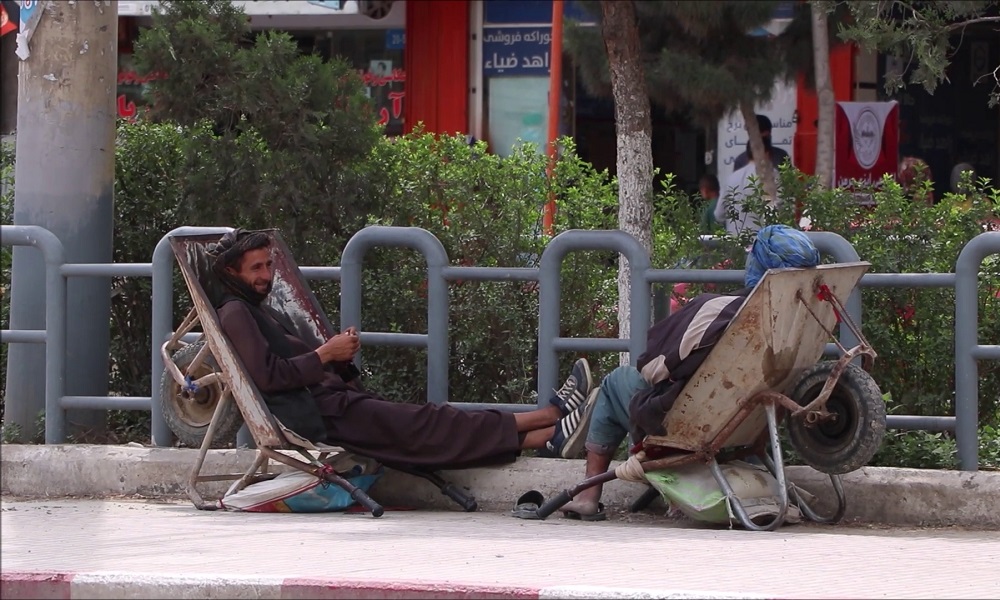
The Ministry of Labor and Social Affairs says on the occasion of International Labor Day, the Islamic Emirate is trying to increase the number of job opportunities in the country.
The ministry said that it has distributed work permits to more than 2,000 people, including women, during the past month.
“Work permits were given to 2,115 of our compatriots over the past month, including to 205 women,” said Samiullah Ebrahimi, a spokesman for the Ministry of Public Works.
“Of course, women have been permitted to work in sectors where women are necessary and their services are for women,” he added.
Meanwhile, workers in the country complain about the lack of jobs and say that the level of unemployment has increased and workers’ wages have decreased.
Afghanistan is one of the countries that has countless child laborers, and according to reports, governments have not been able to end this practice.
“I work for 200 to 300 afghanis a day, and there are eight members in our family,” said one child laborer.
“I am 12 years old and in sixth grade. I earn 150 afghanis per day, there are seven of us and I have been working here for one and a half years,” said another child laborer.
According to UN statistics, in 2024, more than 23 million people in Afghanistan need humanitarian aid, and that most of them are unemployed.
However, the demands are that international institutions should provide work for the people of Afghanistan by implementing development projects.
Latest News
Cooperating with Islamic system people’s Sharia duty: Hanafi
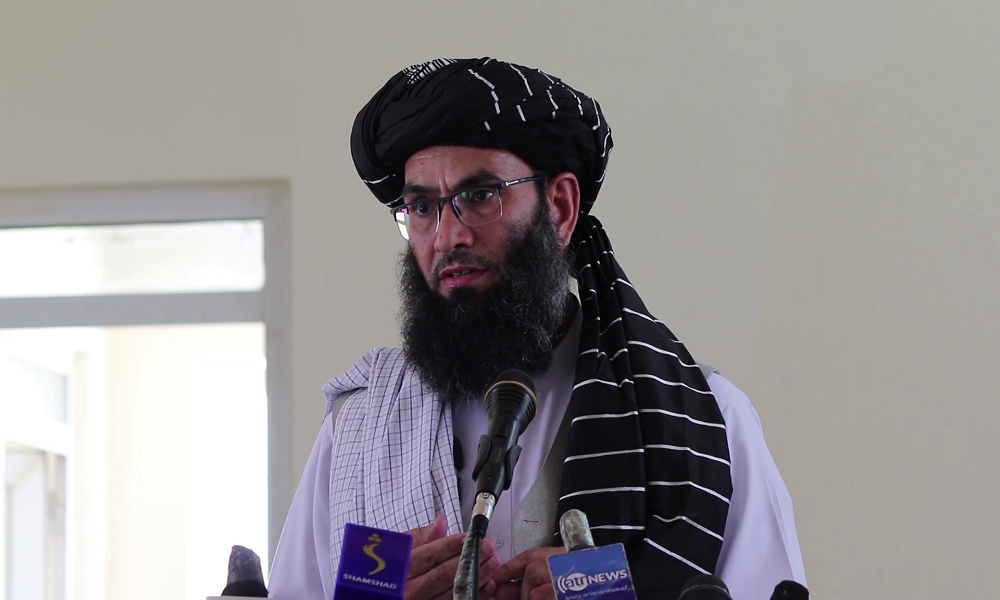
The Islamic Emirate’s Miynister of Propagation of Virtue and Prevention of Vice, Mohammad Khalid Hanafi, says there is no gap between the current system and the people and that cooperation with the Islamic system is the people’s Sharia duty, the ministry said in a statement.
At a gathering in Kabul, Hanafi said: “This Islamic system is the people’s system, the people are considered part of this system, there is no gap between the system and the people. Therefore, cooperation with the Islamic system is the people’s Sharia duty.”
“It’s a very positive thing that we Afghan people do not have differences among ourselves as before, we live under the command of one leader and the flag of the Islamic system,” Hanafi stressed.
“The goal of Jihad was to end the occupation, gain independence and strengthen the Islamic system in the country,” he stated, adding that “all these goals have been achieved with the help of God and the cooperation of Afghans.”
“Now the time has come to serve and cooperate with the people to solve the problems and implement the Sharia rules of the Islamic system,” he added.
The ministry stated that in addition to providing and protecting women’s Sharia rights, thousands of complaints have been resolved so far.
Latest News
Washington sees interaction with IEA as opportunity to protect its national interests
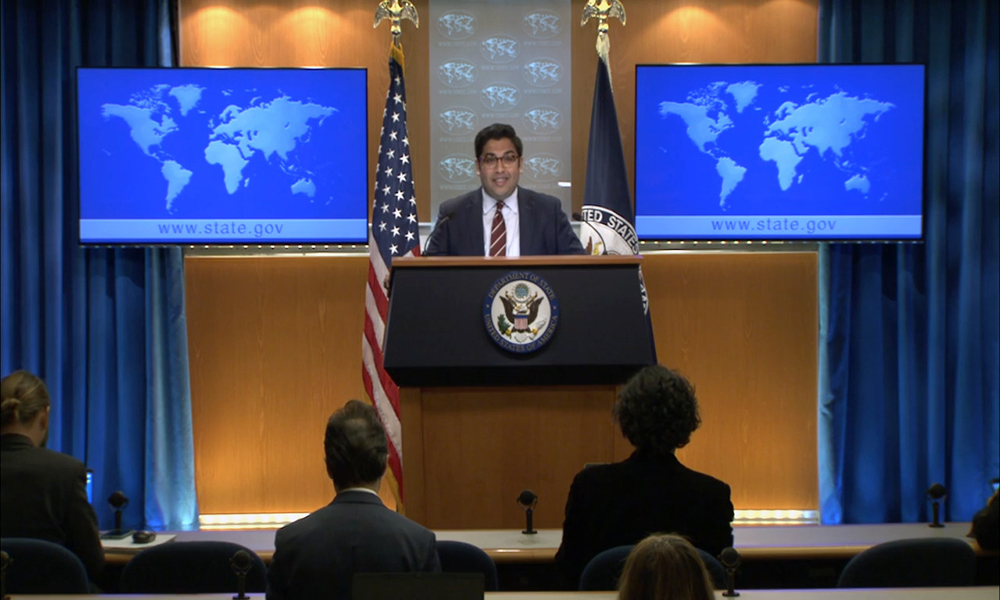
The Deputy Spokesman of the US State Department says that when the interests of his country are involved, Washington will not hesitate to interact with the Islamic Emirate.
Vedant Patel said that interaction with the Islamic Emirate is not only the best way to protect the interests of America, but also to support the people of Afghanistan.
Speaking at a press conference on Tuesday, he said interaction with the Islamic Emirate provides the basis for a direct dialogue with them.
According to Patel, this interaction is an opportunity to continue the pressure on the Islamic Emirate for the immediate and unconditional release of American citizens, including those who have been caught “unjustly”.
Patel added that the United States would also take advantage of these opportunities to talk directly with the Islamic Emirate about commitments to counter terrorism. He emphasized that Washington human rights issues are also on the agenda.
-

 Latest News5 days ago
Latest News5 days agoPakistan extends registered Afghan refugees’ stay till June 30
-

 Sport3 days ago
Sport3 days agoAfghanistan qualify for FIFA Futsal World Cup for first time ever
-

 Regional5 days ago
Regional5 days agoChina to host Hamas, Fatah for Palestinian unity talks
-

 Latest News5 days ago
Latest News5 days agoUS diplomat Bass travels to Qatar and Pakistan to discuss Afghanistan, regional issues
-

 Sport4 days ago
Sport4 days agoAsia must believe Afghanistan’s power in futsal: Mortezaei
-
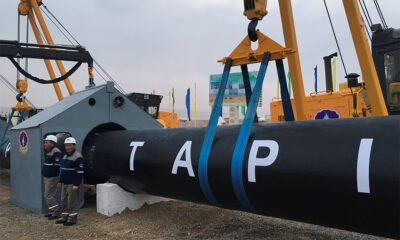
 Latest News4 days ago
Latest News4 days agoTurkmenistan committed to complete TAPI energy project
-
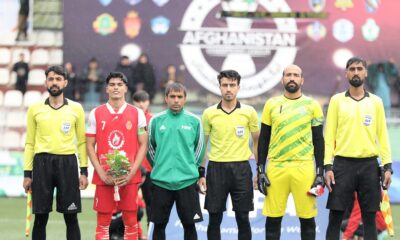
 Sport3 days ago
Sport3 days agoACL: Mawj Sahil 2-1 Sarsabz Yashlar; Sorkh Poshan 6-0 Maiwand
-
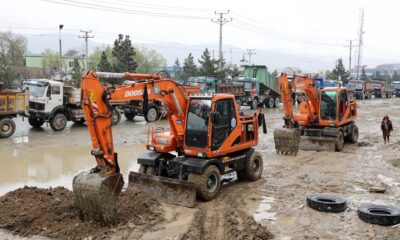
 Latest News4 days ago
Latest News4 days agoThree road construction projects launched in Kabul

![Eelection 21-5-2015-PASHTOO-SOT.avi_snapshot_00.16_[2015.05.21_15.03.29]](http://ariananews.af/wp-content/uploads/2015/05/Eelection-21-5-2015-PASHTOO-SOT.avi_snapshot_00.16_2015.05.21_15.03.29-300x240.jpg)













